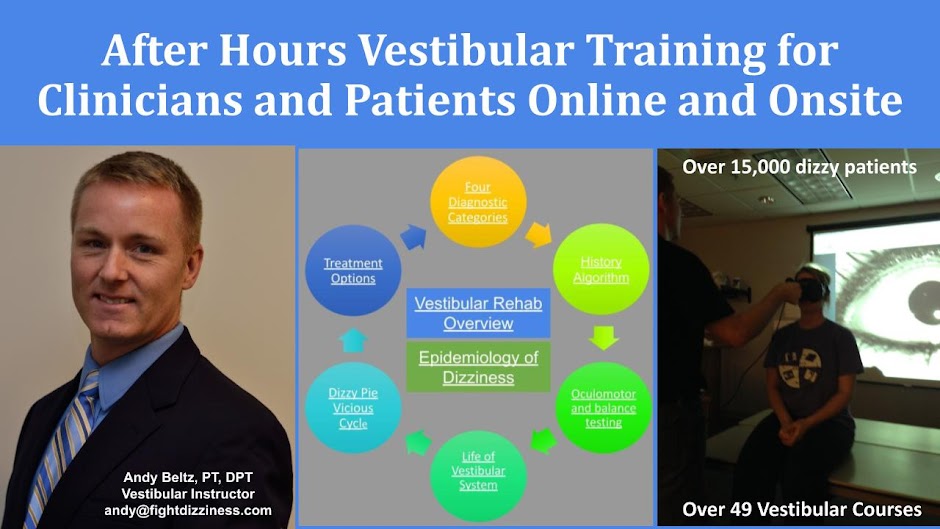what would be the most important concepts on which to focus? I believe the following would be the most important:
1. The most common causes of dizziness are from peripheral vestibular problems.
2. There are two main types of peripheral vestibular problems:
a. vestibular hypofunction
b. vestibular hyperfunction
3. The most common cause of a vestibular hypofunction is neuritis/labyrinthitis (virus).
4. The most common cause of a vestibular hyperfunction is BPPV.
5. Understanding how these problems occur will help the individual understand the type of questions to ask their clients when they say they are dizzy.
6. There are over 320 different ways people describe their dizziness, but there are some very specific questions to ask to help identify neuritis, labyrinthitis and/or BPPV.
7. There are some simple bedside tests that can be used to identify a hypofunction in room light:
a. spontaneous and gazehold nystagmus tests as well as the head impulse test
8. The Dix Hallpike and Roll tests can be utilized to identify BPPV.
9. Naming nystagmus can improve the likelihood for successful repositioning.
10. The Epley and Semont Maneuvers are often helpful if done properly and to the correct side.
11. Other maneuvers may be needed when the Otoconia are rebellious or in other canals.
12. Repositioning should be done for BPPV and Adaptation should be done for hypofunctions.
13. Sensory processing disorders may also be present with clients who are dizzy and are common.
14. Motion sensitivity, visual dependence, neck pain, headaches, imbalance, fear of falls and other forms of anxiety are common.
15. Other types of therapy and motivational education may be needed to normalize neck strength, ROM and improve nervous system homeostasis.
16. Clients should be referred to specialists when: the dizziness is acute and/or has not been diagnosed, when the practitioner lacks adequate training, when treatment has not worked or provided any relief within three to six visits, when red flags become apparent during the history or exam.
17. Beware of the trap of "It."
18 There are often several reasons for the complaints of dizziness a client is experiencing.

Actually with proper concentration you can easily do it within four hours. You need to focus on the topic to learn about it. site that helps me a lot on my academic papers writing.
ReplyDelete